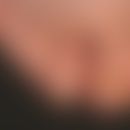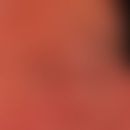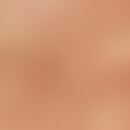Synonym(s)
HistoryThis section has been translated automatically.
Samman & White 1964
DefinitionThis section has been translated automatically.
Very rare disease characterized by the clinical triad: yellow nails, primary lymphedema and chronic respiratory diseases (mostly bronchiectasis).
You might also be interested in
Occurrence/EpidemiologyThis section has been translated automatically.
No assured gender dominance
EtiopathogenesisThis section has been translated automatically.
More common in immune disorders and malignancies. Rarely also as side effect of medication ( penicillamine).
Pathogenetically, the nail changes and lymphedema are based on congenital hypoplasia of the peripheral lymph vessels.
ManifestationThis section has been translated automatically.
The age of onset of the disease is between 41-80 years, the mean age of onset is 60 years.
ClinicThis section has been translated automatically.
Integument: Thickened nails, yellow or yellow-green in the whole nail area, slowly or not at all growing, gradually thickening nails(scleronychia) with increased cross-ribbing and peripheral onycholysis. Typical is the loss of the lunulae.
Associated extracutaneous symptoms: bronchitis (J42), bronchiectasis (J47), α-1-antitrypsin deficiency (E88.0), lymphatic vessel changes with consecutive lymphedema of the extremities (I89.0), genitals, face, vocal cords.
LaboratoryThis section has been translated automatically.
General therapyThis section has been translated automatically.
Spontaneous remission possible, internal treatment of the underlying disease.
External therapyThis section has been translated automatically.
Note(s)This section has been translated automatically.
There is evidence for the occurrence of "yellow nails" in the "lymphedema distichiasis syndrome", a clinical picture in which a mutation of the FOXC2 gene is present.
Case report(s)This section has been translated automatically.
The 63-year-old patient with known silicosis of the lungs and bronchiectasis has noticed a gradual, completely painless thickening and yellowing of all fingernails for about 1 year. He hardly has to cut back his nails, which are now very difficult to cut. At the instigation of a doctor, he had carried out several local and also systemic therapies with antimycotics.
Findings: Thickened nails, yellow-greenish in the entire nail area, evenly thickened, with increased cross-ribbing. Loss of the lunulae.
LiteratureThis section has been translated automatically.
- Emerson PA (1966) Yellow nails, lymphoedema and pleural effusion. Chest 21: 247-253
- Glazer M et al (2000) Successful talc slurry pleurodesis in patients with nonmalignant pleural effusion. Chest 117: 1404-1409
- Venencie PY, Dicken CH (1984) Yellow nail syndrome: report of five cases. J Am Acad Dermatol 10: 187-192
- Samman PD, White WF (1964) The "yellow nail" syndrome. Br J Dermatol 76: 153-157
- Samman PD (1964) The Yellow nail syndrome: Dystrophic nails associated with lymphoedema. Trans St Johns Hosp Dermatol Soc 50: 132
- Scher RK et al (2003) Onychomycosis in clinical practice: factors contributing to recurrence. Br J Dermatol 149(Suppl 65): 5-9
- Tosti A et al (2002) Systemic itraconazole in the yellow nail syndrome. Br J Dermatol 146: 1064-1067
Valdés L et al (2014) Characteristics of patients withyellow
nail syndrome and pleural effusion. Respirology 19:985-992
Incoming links (10)
Bronchiectasis; Chromonychia; Lung diseases, skin changes; Lymphatic malformations; Nail dyschromia; Psoriasis of the nails; Scleronychia; Scleronychy syndrome; Vitamin e solution 5%; Yellow nail syndrome;Outgoing links (7)
Bronchiectasis; D-Penicillamine; Lymphedema (overview); Nail; Onycholysis (overview); Scleronychia; Vitamin e solution 5%;Disclaimer
Please ask your physician for a reliable diagnosis. This website is only meant as a reference.







